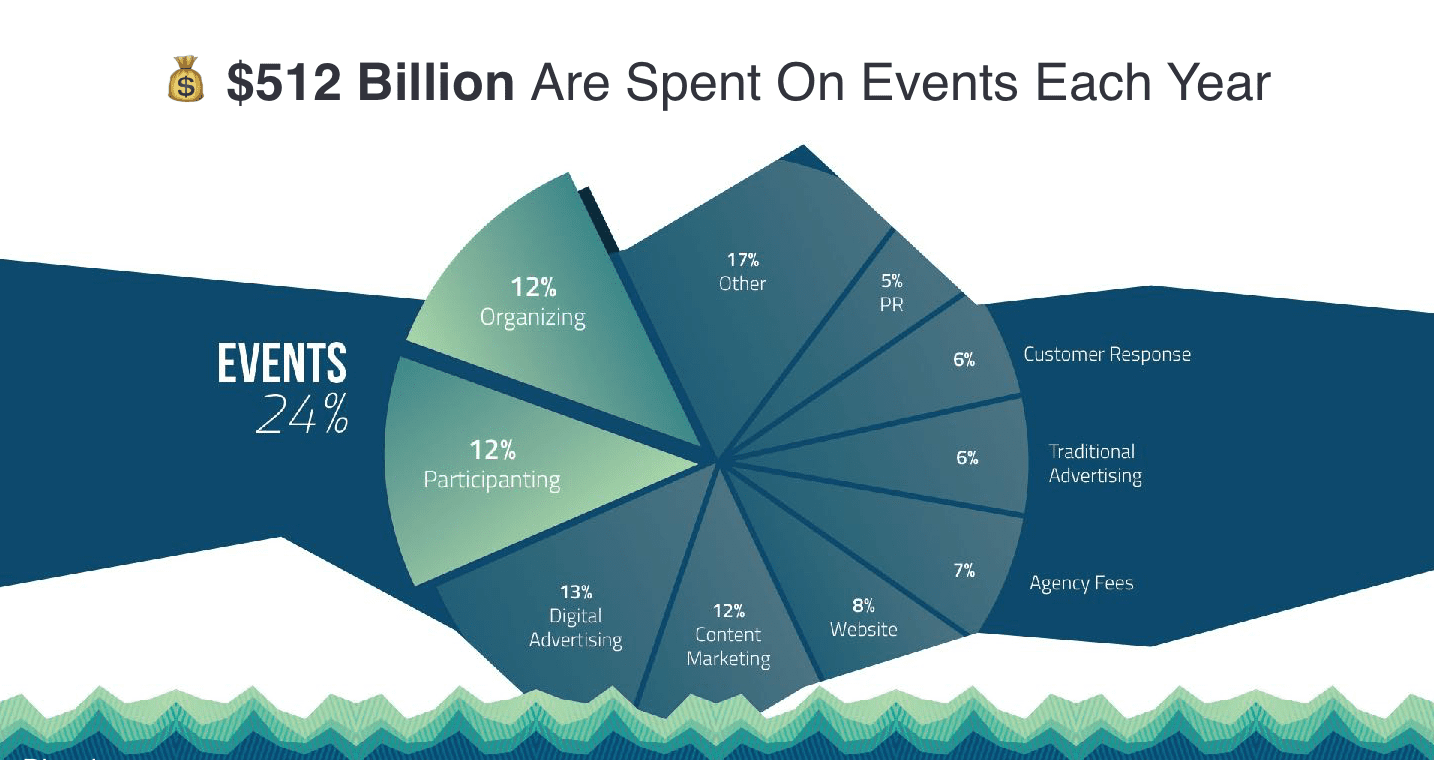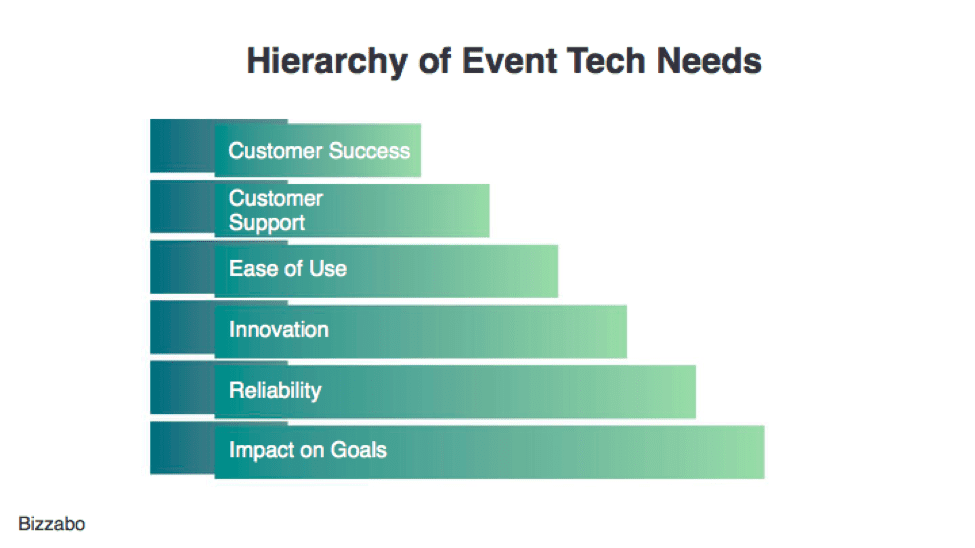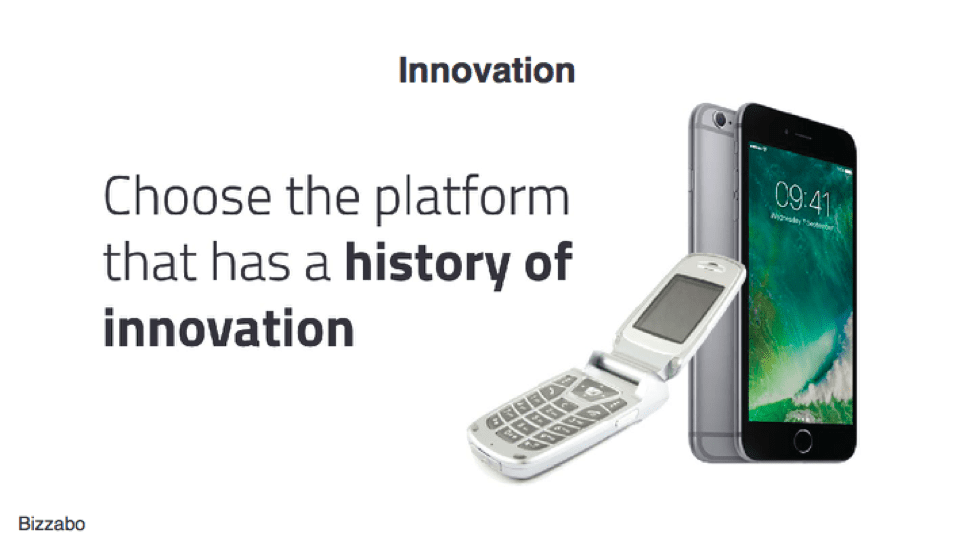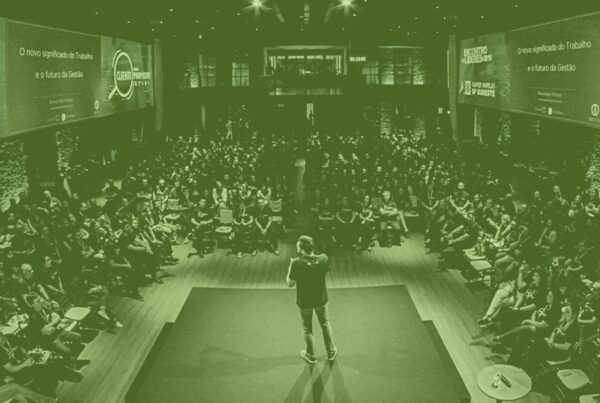Today we’re going to talk about how to choose the best event software for you and your needs. We’ll start with the state of the event technology industry and then we’ll move into a decision making framework designed to help event organizers find the right event software. Since there is no one-size-fits-all tool, readers will want to select a different platform depending on your goals.
The State of the Event Tech Industry
Let’s dive in first to the state of the event tech industry. If you’re not familiar, event organizers and event marketers have critically important jobs. In part, this is because organizers work in an industry that’s worth about a half-a-trillion dollars. Events account for the single-largest line item of most B2B CMOs. In fact, 24% of a CMO’s budget, is spent on live events.
This is absolutely staggering if you think about the other areas where we know a lot of money is spent in the marketing world. All of the money spent on digital advertising and content marketing is less than the money spent on events. If you are pursuing an event strategy with your business plan, you need to find an event tech platform that will maximize event spend.
Of course, there’s a reason why businesses are investing so heavily in live events. We are in an increasingly digital world, and it is becoming increasingly difficult for you to connect with your target audience. That audience may be a prospect or a potential candidate for your business or even with employees internally.
Another trend we’re seeing is that the event technology industry is poised for disruption. In 2016, $50 million was raised by new event tech solutions in the United States. Of course, Bizzabo’s event management software was a part of that with our most recent round of funding worth $6.5M. The market is voting with their wallets and saying that event technology is poised for disruption.
While venture funding is going to newer event technology companies, some parts of the market are consolidating. In November of 2016, a private equity firm called Vista Equity Partners purchased Lanyon and Cvent for a combined $2.5+ billion. Then in May of 2017 , another private equity firm called HGGC acquired another event management platform, etouches.
Future Event Technology Trends
In 2017 and 2018 we expect event technology platforms will evolve to suit the needs of modern event marketers and organizer. We expect:
- Event technology will be able to turn event data into actionable insights.
- software will have integrations with various CRMs to solve the event attribution problem.
- platforms will become increasingly user-friendly.
Turning Data Into Insights
The real point of collecting data is to measure and improve key metrics. We expect platforms will being able to give you contextual advice about what you need to do in order to reach that goal.
Mastering Event Attribution
We also expect event attribution reporting will improve. Attribution reporting will help you to justify your event planning spend. It allows businesses to understand which activities and campaigns created new prospects and new customers. Whatever your role, event attribution reporting will allow you to understand the impact of an event you organized. Thanks to integrations you’ll actually be able to solve that attribution problem with a good event management software and a CRM. You will be able to see how events influenced your target audience.
Making Event Technology More User-Friendly
Platforms will become increasingly user-friendly, and that’s because event professionals like you are starting to demand tools that are easier to use. If you just think about the other technologies you use every day, from your smartphone to a marketing automation tool, all of them have become increasingly user-friendly.
If you recall the early days of the smartphone, you might have had a Palm Pilot. You could have technically stored music on that Palm Pilot, but how many of you actually stored your music on your Palm Pilot? Even though it had the functionality to be able to store music, it wasn’t user-friendly enough for you to do that in an effortless way. Then the iPhone arrived and then we all became heavy music consumers.
That’s the importance of user-friendliness. We’re already seeing platforms that are user-friendly begin to take market share and begin to have superior customer reviews.
Event Technology Selection Framework: How To Choose The Best Event Software
The next topic to tackle is the event tech selection framework. This framework is designed to help you choose the best event software that fits your needs and your event goals. It’s a myth that there’s a one-size-fits-all tool.
S.M.A.R.T goals are based on the acronym for specific, measurable, actionable, reasonable, and time-sensitive. It’s a framework for you to determine what are the most important things to achieve.
Specific: Increased early-bird registrations.
Measurable: Increase registrations by 10% from early-bird registrations.
Achievable: Increase early-bird registrations by 10% as a low goal, increase early-bird registrations by 30% as the high goal.
Results-Focused: Send 100 emails each week to event registrants or previous registrants. That is really not what you want to focus on. What you want to focus on is a goal that is going to impact the overall success of your event.
Time-Sensitive: Increase early-bird registrations by 10% within the first three months of launching registration.
Let’s say you’ve come across a few different vendors that you think will impact your SMART goals similarly. What are the other criteria you should be thinking about in order to choose the best event software for you and your team?
Reliability
The second thing after your SMART goal is reliability. We are not in an industry where all platforms are equally reliable. Unfortunately, there are vendors out there in event management land that don’t provide outstanding reliability. You know that outages—whether it’s registration that isn’t working or an event app that is malfunctioning—can cause big problems.
I’m sure you all want to choose the best event software, but how do you actually know if the platform you’re choosing is reliable because every vendor is going to tell you, “Oh, yeah, sure. We’re super reliable. You can depend on us, and we have customer support too if something goes wrong”?
Here are a few questions you to ask vendors:
- “What is your platform uptime for the last year, and is it better than 99%, and if not, why?”
- “If something should go wrong with the platform how can I contact support? Will I have to pay extra to receive various levels of support?”
- “Is your company willing to sign an SLA (service level agreement) committing to a certain level of platform up-time?”
Innovation
In 2007, the year the iPhone was launched many cell phone shoppers opted for a flip phone over an iPhone. The flip phone performed every action that the shopper thought they needed. Other shoppers decided to invest their money in an iPhone that, it allowed them to make phone calls and send text messages. But it also allowed them to store thousands of songs, and take pictures, and it allowed them to have access to a whole new world of software called applications.
When you’re trying to choose the best event software, all things being equal, you want to choose the company that is going to be the iPhone. You want to continually have access to tools and features that you never even thought you needed because there’s a whole company with expert engineers and product managers focused on and listening to your needs and developing novel solutions to those needs.
Source: Bizzabo Event Software Buyer’s Guide
Ease of Use
All things being equal, the easy-to-use solution is going to most likely bring better ROI for you and your team. Ease of use usually means you get to be more efficient with your time.
The best way to choose the best event software is to ask for a trial. Try out an event software for yourself for a few days. If a vendor is not willing to provide a free trial, you should at least request a live demo of the platform, and—if you can—try to control the platform yourself in front of the vendor or salesperson. Use the mouse and click around on your own, if that’s possible, to see if the user interface is intuitive for you and your team to use.
Customer Support and Customer Success
The last two categories are ones that people may not think about dividing, that’s customer support and customer success. You should be asking vendors about both—not just customer support when trying to choose the best event software. Customer support is what first comes to mind when they think of getting assistance with software. It’s the help desk, the department you contact when you’re having an issue with your platform. It’s a vital service, but a reactionary one.
The other category is customer success. This is often overlooked by many shoppers. Customer success is when you’re assigned a specific individual who is going to be in charge of helping you reach event success. This isn’t just success with the platform you choose. It’s just event success in general. You can think of them as a consultant who is there to lend you and your team advice about best practices. In comparison to customer support, customer success is proactive and is something to be considered when trying to choose the best event software.
What to do Before Selecting An Event Technology Platform
Speak with other customers
You need to speak with the vendor’s customers in your industry to ask how their experience has been so far in order to properly choose the best event software. Every industry is unique. At Bizzabo we’re a SaaS platform. Whenever we make an investment in technology, we speak with other SaaS companies for example.
Note: It’s fair to ask the vendor for a referral customer. It’s also fair for you to find those customers on your own using third-party sites like Capterra and G2 Crowd.
Ask About Upcoming Product Updates
The next thing to do is to ask the vendor you’re speaking with to talk about some of the exciting product updates the company is working on. Ask the vendor when those updates are coming out. If this company is truly passionate about their product, they’re going to all know about the cool, exciting updates that are coming upcoming whether they are a salesperson or someone else at the company.
They should also be aligned about when those updates are coming out. If not, then maybe that update really isn’t coming out at all. It’s critical to understand the product roadmap and to check to see if the company is passionate about what they’re working on when trying to choose the best event software.
Know what Happens if you Cancel your Contract
While everyone may try to choose the best event software, some may not always be successful. You should know what happens if you cancel your contract. If you’re able to cancel your contract, what are the terms and conditions that allow you to exit the contract? If you do cancel, you should know whether or not you’re going to be charged a fee to cancel and whether or not you’ll be charged a fee to access the data on your platform. Depending on the company, it may be stipulated in the contract that
If you do cancel, you should know whether or not you’re going to be charged a fee to cancel. Also, find out if you will be charged a fee to access your data. Depending on the company, it may be stipulated in the contract that they own your data and that you don’t get access to it when you leave.
A Few Final Thoughts And A Free eBook To Help You Choose The Best Event Software
Event organizers need best-in-class event management technology to plan successful events in this day and age. There are a variety of event technology solutions available that can help event organizers and event marketers reach event goals. To choose the best event software, understand what your SMART goals are and then evaluate vendors based on the hierarchy of event technology needs.












